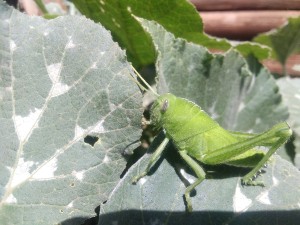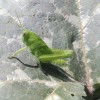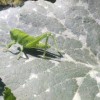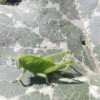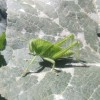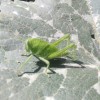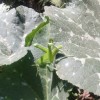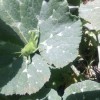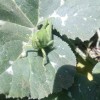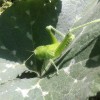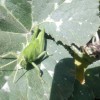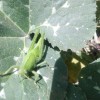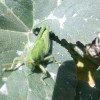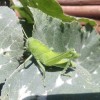- Photos
- Green grasshopper of the Caelifera suborder
Green grasshopper of the Caelifera suborder
ES
Emmanuel Sagini
Updated
Explain more about the photos or videos like location, time and the specific camera settings you would have used to take these photos. Also, if you would have used any accessories or a smartphone app to take the media you are sharing, you can mention them here.
The suborder Caelifera includes a group of insects known as grasshoppers. They belong to what may be the oldest living group of insects that eat plants, going back to the early Triassic 250 million years ago.
Grasshoppers are typically ground-dwelling insects with strong hind legs that enable them to leap vehemently to avoid danger. Because they are hemimetabolous, they do not fully transform; instead, they emerge from an egg as a nymph or "hopper" that goes through five moults and becomes closer to the adult insect with each one.
While the grasshopper's sense of hearing comes from the tympanal organ, which is located in the first segment of the abdomen connected to the thorax, its sense of vision comes from the compound eyes, and its perception of changes in light intensity comes from the simple eyes (ocelli).
Certain grasshopper species can alter their appearance and behavior and form swarms at high population densities and in specific environmental conditions. They are referred to as locusts when this occurs.
Grasshoppers are typically ground-dwelling insects with strong hind legs that enable them to leap vehemently to avoid danger. Because they are hemimetabolous, they do not fully transform; instead, they emerge from an egg as a nymph or "hopper" that goes through five moults and becomes closer to the adult insect with each one.
While the grasshopper's sense of hearing comes from the tympanal organ, which is located in the first segment of the abdomen connected to the thorax, its sense of vision comes from the compound eyes, and its perception of changes in light intensity comes from the simple eyes (ocelli).
Certain grasshopper species can alter their appearance and behavior and form swarms at high population densities and in specific environmental conditions. They are referred to as locusts when this occurs.
Enter the keywords that are relevant to the photos or videos that you will upload with this post.
User reviews
There are no user reviews for this listing.
Already have an account? Log in now or Create an account

